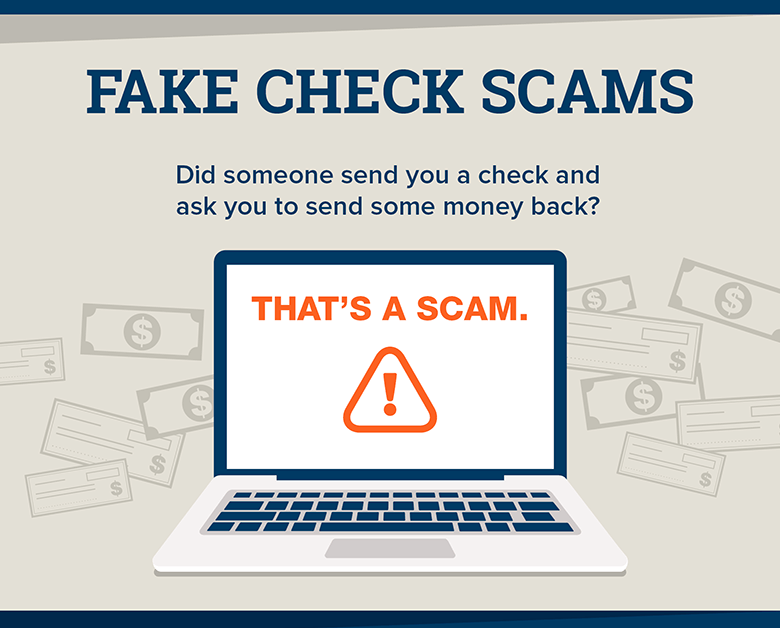This article was originally posted by the FTC. See the original article here.
Scammers are targeting college students. In the last year, we told you about a car wrap scam and a COVID-19 scam hitting college students. Today, we want to tell you about a fake check scam.
In this one, a scammer posing as a professor sends you an email. It uses a college domain name and a format like your.name@collegename.edu. The scammer offers you a part-time job, like personal assistant or dog walker. Then, the scammer sends you a check, asks you to deposit it, send some of the money to someone else, and keep the rest as payment. A while later, the bank realizes the check was fake and deducts the original check amount from your account. So, if you deposited a $1,000 check, they’ll take that back. But if you sent $400 to someone else, you’re now out $400 of your own money.
People report losing a lot of money to fake check scams. The median loss in 2019 was $1,988. That’s a lot of money for anyone to lose. But an FTC analysis published earlier this year showed that people in their twenties are more than twice as likely as people over 30 to report losing money to fake check scams.
So how do you avoid a fake check scam? Never use money from a check to send gift cards, money orders, or wire money to someone. It’s always a scam. And, once you send the money or put it on a gift card and give someone the gift card PIN, it‘s like giving them cash. It’s almost impossible to get your money back.
Banks have to give you money from deposited checks within a few days. But if the check turns out to be a fake, they’ll make sure they get that money back from your account. The bottom line is, if someone sends you a check and tells you to send money by wire transfer or gift card — it’s a scam.
Spotted a scam like this? We want to hear about it. Let us know at ReportFraud.ftc.gov.
Brought to you by Dr. Ware, Microsoft Office 365 Silver Partner, Charleston SC.




Recent Comments